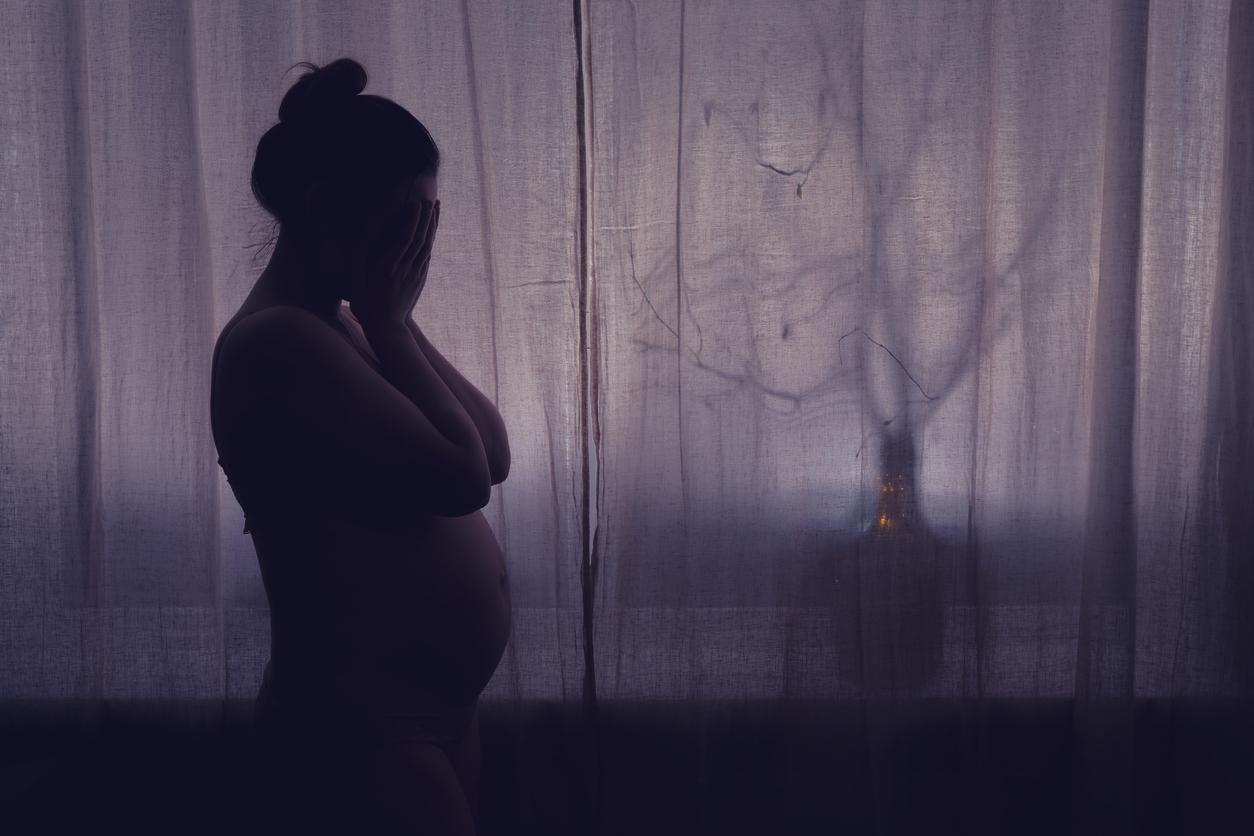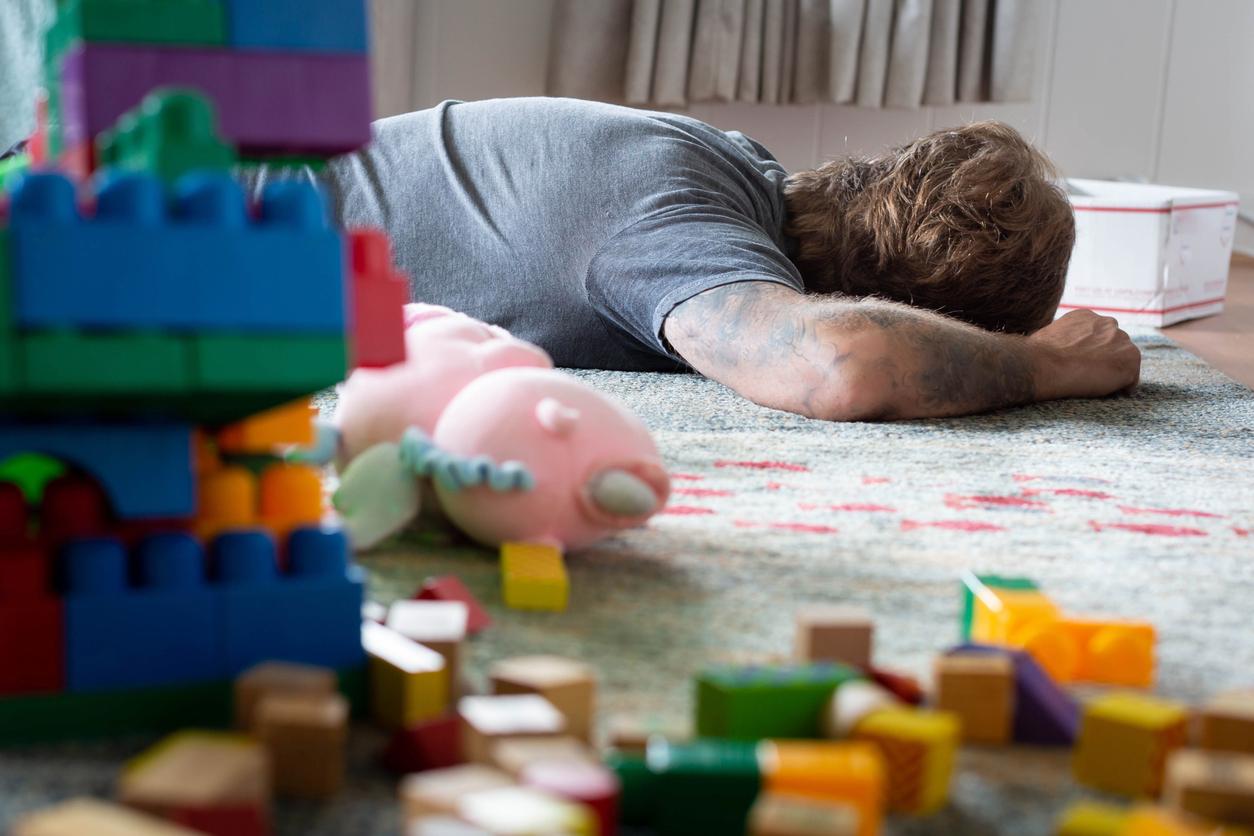The mother’s mood influences the baby’s ability to distinguish words, essential for language learning. Infants have a harder time when their mother has baby blues or postpartum depression, according to a new study.

- Doctors speak of postpartum depression when depressive symptoms last more than two weeks after delivery.
- This disorder is to be differentiated from the baby blues, a postnatal depressive mood of shorter duration linked to the sudden drop in pregnancy hormones.
- Postpartum depression can lead to adverse effects on the child. Rapid support is therefore necessary for the well-being of all.
Between 50 and 80% of young mothers develop baby blues, according to health insurance. Postpartum depression concerns 16.7% of young mothers, according to a recent perinatal health survey. It is to be differentiated from the baby blues, especially in terms of duration: the depressive symptoms must have been present for more than two weeks.
A new studypublished in JAMA Network Openshows how this difficult time for the mother could affect language development in babies.
Mothers with depressed mood talk more monotonously to baby
Researchers from the Max Planck Institute in Germany have analyzed the consequences of the mother’s mood on how babies distinguish between different speech sounds and words, a very important ability for the next steps towards learning to speech. Their results show that a more negative mood during the two months after birth causes less mature processing of speech sounds at six and a half months of age.
Mothers who suffer from depressed mood often use more monotonous, less infant-oriented speech, which would lead to a poorer perception of different intonations by the child, the researchers suspect. Because, in general, the tones vary a lot when a mother speaks to her child, which makes it possible to emphasize certain parts of the words more clearly – and thus concentrate the attention of the toddlers. This poorer perception could slow down language development later on.
Depressive disorders: “sometimes it’s enough for fathers to get more involved”
46 young mothers participated in this study. Their different moods after childbirth were measured using a questionnaire generally used to diagnose postnatal disorders. Electroencephalography (EEG) has also been used to analyze how babies manage to distinguish between different speech sounds. The researchers thus noted the difficulties in certain babies, aged between two and six months, to differentiate the syllables. These difficulties were correlated with depressed moods in the mother.
“To ensure the proper development of young children, appropriate support is also needed for mothers who suffer from mild depressive disorders, which often do not yet require treatment”explains in a communicated Gesa Schaadt, professor of child and adolescent development at FU Berlin and co-author of the study. According to her, this is not necessarily medical support: “Sometimes all it takes is for dads to get more involved.”















